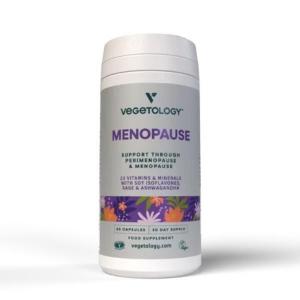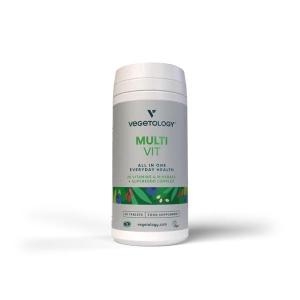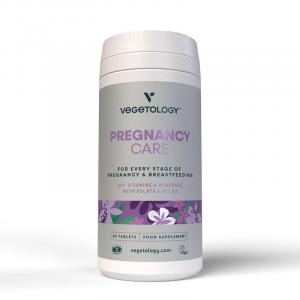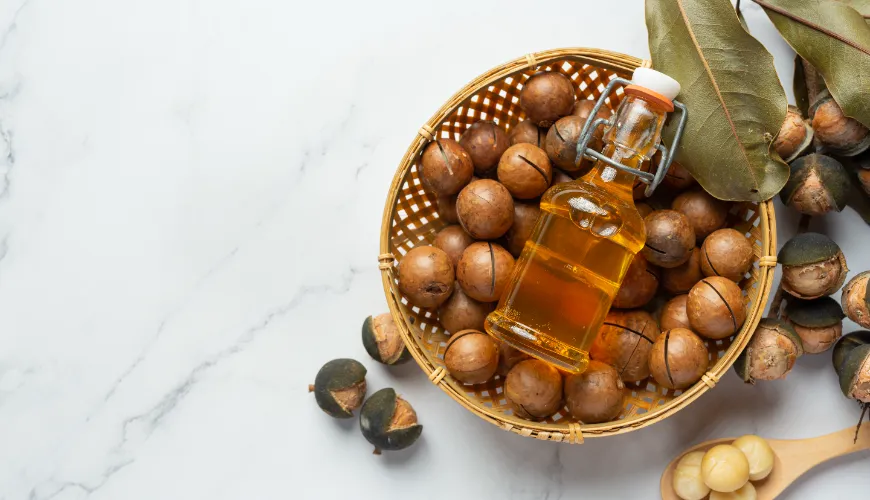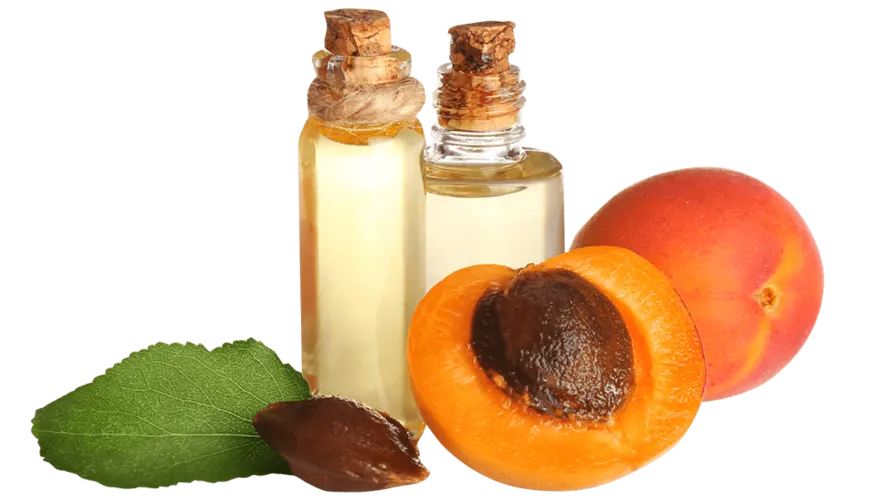
Poppy Seed Oil: Health and Beauty Benefits You Should Know

In recent years, poppy seed oil has been gaining popularity among enthusiasts of natural cosmetics and a healthy lifestyle. This cold-pressed wonder from the opium poppy is renowned not only for its delicate nutty flavor but also for its numerous beneficial effects on health and beauty. It is no surprise that it is increasingly featured in both dietary supplements and skincare products. So, what exactly can poppy seed oil do, what benefits does it offer for skin and health, and are there any side effects?
The Wonder of Poppy - What Does Poppy Seed Oil Contain?
Poppy seed oil is pressed from the seeds of the opium poppy (Papaver somniferum), a traditional plant with deep roots in Czech culture. Unlike opium pods, mature seeds contain no addictive substances — instead, they are rich in valuable nutrients. Poppy seed oil is notable for its high content of unsaturated fatty acids, particularly linoleic acid (omega-6) and oleic acid (omega-9). It also contains vitamin E, calcium, magnesium, iron, and phosphorus.
Try our natural products
The composition of the oil is key to its effects. Thanks to its rich spectrum of nutrients, poppy seed oil ranks among the most valuable plant oils for internal and external use. Moreover, it is hypoallergenic, making it an ideal choice for sensitive skin or children.
Poppy Seed Oil and Its Health Benefits
The beneficial effects of poppy seed oil on human health are supported by both folk traditions and modern scientific research. Regular consumption of cold-pressed poppy seed oil can help address a range of health issues—from calcium deficiency to sleep disorders.
One of the most discussed benefits is its support for healthy bones and joints. Thanks to its high content of calcium and phosphorus, which are well absorbed by the body, poppy seed oil can help prevent osteoporosis, a benefit particularly appreciated by older adults or postmenopausal women. Moreover, the calcium from poppies does not come from dairy sources, making it a welcome alternative for vegans or those with lactose intolerance.
Poppy seed oil has also proven effective in supporting the nervous system. It contains not only essential fatty acids but also magnesium, which helps manage stress, soothe, and promote quality sleep. Some people even use it as a natural alternative to mild sedatives—perhaps taking a teaspoonful in the evening before bed.
Poppy seed oil also plays a role in the prevention of cardiovascular diseases. Unsaturated fatty acids are crucial in lowering levels of "bad" LDL cholesterol while increasing "good" HDL cholesterol. They help protect blood vessels, lower blood pressure, and act against inflammatory processes in the body.
We must also not forget about the immune system boost, which is another benefit of regularly incorporating this oil into the diet. Vitamin E, a natural antioxidant, helps protect cells from oxidative stress and supports the body's defenses.
Effects of Poppy Seed Oil on Skin
In addition to its internal effects, poppy seed oil is a true elixir for the skin. Its light, quickly absorbable texture makes it an ideal care product not only for dry and sensitive skin but also for mature skin prone to wrinkles.
Poppy seed oil for the skin acts as a moisturizing and soothing agent. Thanks to its high linoleic acid content, it helps restore the natural skin barrier, maintain moisture, and reduce irritation. It is also suitable for skin conditions such as eczema, psoriasis, or dermatitis.
Interestingly, poppy seed oil also has regenerative effects, aiding in the healing of minor wounds, burns, or scars. The skin appears smoother, more elastic, and rested after use, as confirmed by numerous user reviews of natural cosmetics containing poppy seed oil.
It can be used either on its own, perhaps as a night serum, or as part of homemade masks and balms. It combines excellently with lavender or rose oil. And because it doesn’t clog pores, it’s a suitable choice even for oilier skin types.
Practical Example
One reader of a natural blog describes how poppy seed oil helped her with chronic eczema on her hands, which worsened especially in winter: "I tried various creams from the pharmacy, but nothing helped in the long term. Then I gave poppy seed oil a chance—regular application twice a day surprisingly got rid of dry spots and itching. Plus, the skin stayed beautifully soft."
Are There Any Side Effects of Poppy Seed Oil?
Although poppy seed oil is considered safe, a few guidelines should be kept in mind. It should be used in moderation—after all, it is a concentrated fat. The recommended dosage for internal use is usually one to two teaspoons per day, ideally on an empty stomach. Consuming more could lead to digestive issues, such as diarrhea.
Sensitive individuals may experience an allergic reaction, though this is relatively rare. It is therefore recommended to test for tolerance before using it on the skin—for example, by applying a drop of oil to the inside of the wrist.
It is also important to distinguish high-quality, cold-pressed poppy seed oil, preferably in organic quality. The processing method significantly affects the nutrient content and the potential risk of unwanted substances. Poppy seed oil should be stored in a dark and cool place to prevent it from becoming rancid.
Unlike poppy pods, oil from the seeds contains no opiates, so it is not addictive, and it can be used safely by the general public, including children. However, people with low blood pressure or those taking blood-thinning medication should consult a doctor about regular use.
How to Use Poppy Seed Oil in Practice
Poppy seed oil is a versatile helper that can be used in the kitchen, bathroom, and home medicine cabinet. Unlike other plant oils, it has a mild flavor and is perfect for sweet dishes—such as oatmeal, smoothies, salads, or cottage cheese desserts. However, it is not suitable for cooking!
For cosmetic use, just a few drops are enough—on the face, as a hair serum, or as an addition to body oils. It absorbs well after a shower on damp skin, locking in hydration and leaving the skin silky smooth.
Where to buy it? The best options are specialty health food stores or e-shops focused on natural products. Look for labels like "cold-pressed," "unrefined," or "organic quality."
As the well-known nutritionist David Frej says: "The best medicines often grow right around us—it’s just a matter of learning how to use them." Poppy seed oil is a beautiful example of this. Perhaps unassuming, but with a surprisingly wide range of benefits worth discovering.
